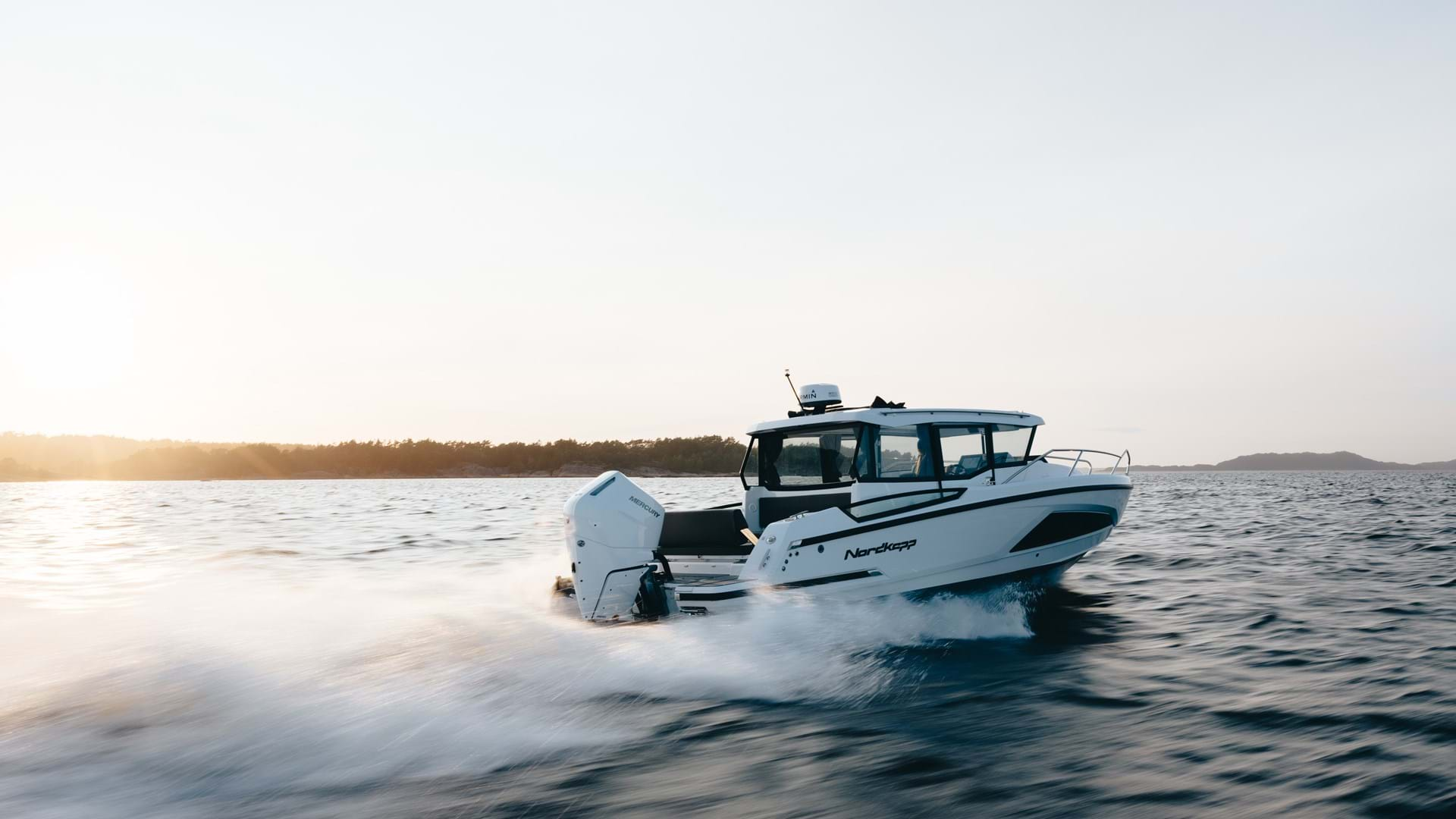
The surprising connection between boating and mental health
Fredrik S. Writer at Nordkapp.
The tale of two men - part 1.
The clock struck midnight as my older brother and I jumped in the car on Christmas eve, escaping the chaos inside my grandparents' house. Heavy snowfall in northern Sweden made the regular 1.5-hour drive home twice as long that evening. As we passed, the pine trees hid in the dark along the road, and both my brother and I were sitting in silence, regathering our senses from the intense evening. Eventually, the silence got us talking, the first real talk we ever had until that point in our lives. We talked about life, work and ambitions. And after a while, he became silent. His hand gripped the stick shift so hard he could have crushed it. A lifetime of tears held back started flowing, clouding his sight even more than the wall of snow we were driving through. When he spoke, he said:
"I would not be alive today if it was not for you guys."
That was the moment I learned how depression and anxiety can crumble a man from the inside and that many ordinary, strong people are fighting a constant war in their minds. This defining moment brought us closer after years of childish sibling rivalry. As luck would have it, my brother got the help he deserved and found his way back in life again, today exceeding in his field.
Christmas snowstorm. Photo by Rémi Jacquaint on Unsplash
The tale of two men - part 2.
It was 5 a.m. when I got the call that my best friend had killed himself. The same man who made everyone around him feel special and who brought sunlight when you felt lost in the dark. The same man who put on a mask daily for others, successfully hiding his mental health problems from the world, fooling everyone but himself.
The tale of two men shows how two people fought their wars. One did it alone in silence, while the other sought help from others. What you take from this story is up to you. But know that no great emperor has fought their battles alone.
Hopefully, this sets the scene for why mental health is so close to my heart. And why I'm glad that Nordkapp provides the platform for me to help spread awareness for the silent killer among us. Today is World Mental Health Day, and I urge you to take extra care of yourself and the people around you.
But what does mental health got to do with boating? The answer might surprise you.

This is our kind of mindfulness.
Did you know that boating promotes a healthy mind?
It's called the blue mind theory. Blue Mind, the brainchild of marine biologist Wallace J. Nichols, delves into the science behind our emotional connection to water. Nichol's research shows that the very sight and sound of water can trigger a medley of positive emotions within us. The gentle lapping of the tides, the shimmering dance of sunlight on the surface, and the salty embrace of the sea have an inexplicable power to wash away the burdens of daily life—all of which we experience aboard our boats.
Yet, it is not merely a poetic reverie; the Blue Mind effect has concrete neurological underpinnings. Water can activate brain regions responsible for emotional regulation, promoting relaxation and reducing stress. The time we spend on our boats taps into our subconscious minds, igniting a primal desire for connection and contemplation.
Being on your boat can make you a happier person on a Neurochemical level.
You have probably noticed that a sense of calm enters your mind aboard your boat. A part of that is because water environments trigger a relaxation response in our brains. The sound of water, such as waves crashing or a babbling brook, can induce a mild meditative state, reducing stress and anxiety.
Being near water also helps restore our cognitive resources. The calming nature of water scenes allows our brains to take a break from overstimulation, leading to increased focus and attention. Ernest Hemingway was a notorious proponent of spending time in nature and sometimes referred to the sea as "The last wild country that is left." To me, this says that Hemingway saw the sea as the ultimate escape from society. And if that held true in the industrial age of 1950, it remains true in today's digital age.
Ernest Hemingway, avid outdoorsman and author of The Old Man and the Sea.
The relaxed state of mind from being on your boat allows for greater cognitive flexibility and innovative thinking, resulting in enhanced creativity and problem-solving abilities. And you are more likely to tap into a flow state since your mind becomes more present in the moment.
Being in a blue mind state is associated with releasing neurochemicals like dopamine and serotonin, which are linked to feelings of happiness and well-being. That means being on your boat can make you a happier person on a Neurochemical level.
That being said, spending time on your boat does not only feel good. It actually does wonders for your overall happiness and mental health. Use this as a reminder to take extra care of your mind during the off-season and take solace in understanding that the boating season will arrive again before you know it.
Let's add this as another reason to get a wheelhouse boat so you can enjoy the benefits of the sea all year round.
